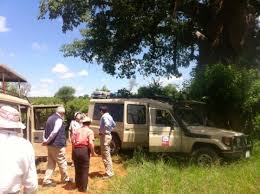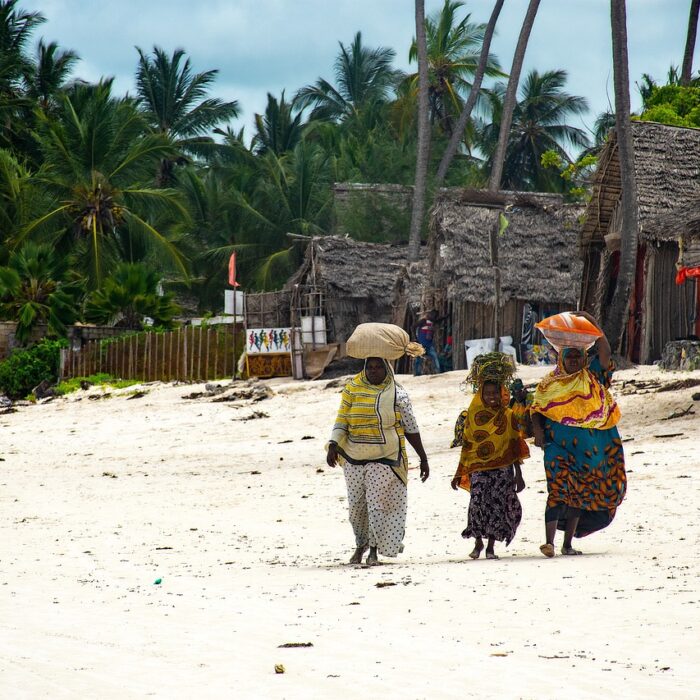
The acacia tree typically bears great importance in African mythology and art. Its ability to survive in the harsh Savannah environment is reflected in its frequent representation as a symbol of determination and enduring strength. In some stories, the acacia tree is seen as a guardian spirit, providing protection and guidance to those who seek it.
Furthermore, acacia wood has been prized for its durability and strength. Indigenous communities have crafted tools, shelter, and even musical instruments from acacia wood, demonstrating its versatile utility.
Gum Arabic from Acacia Senegal finds applications in detergents, inks, pesticides, insecticide sprays, concrete, lithographic plates, unique papers, confections, adhesives, and more. It also coats metals to prevent corrosion and matches ceramic pottery, fireworks, and cartridge powder.
The unique appearance, sweeping canopy, and thorny branches of the Acacia tree have also made their way into traditional art forms. It can be seen in paintings, sculptures, and tribal crafts, representing the African landscape’s beauty and ruggedness.
Threats Facing Acacia Trees
Despite their resilience, acacia trees face various threats that endanger their existence. Habitat loss due to agricultural expansion and urbanization poses a significant challenge. Additionally, with its prolonged droughts and altered rainfall patterns, climate change places stress on these trees, making it harder for them to thrive in their natural habitat. If left unregulated, overgrazing by herbivores can also take a toll on acacia populations.
Furthermore, invasive species and diseases can harm acacia trees, disrupting their ecosystems and causing long-term damage. Deforestation, frequently driven by the demand for wood and land clearance, can result in the loss of these valuable trees.
Conservation Efforts And Initiatives
Recognizing the importance of acacia trees, conservationists and organizations are actively engaged in protecting and preserving them. Conservation efforts include establishing protected areas and reserves where acacia trees can thrive undisturbed. Reforestation projects help restore habitats and combat deforestation. Sustainable land management practices are also promoted to balance the needs of local communities and safeguard the trees.
Furthermore, scientific research continues providing insights into acacia tree conservation, enabling better understanding and managing these vital species. Collaborative initiatives involving governments, NGOs, and local communities are essential for securing a future for Acacia trees and the ecosystems they support. These efforts strive to ensure that these iconic trees continue to grace the African Savannah for generations to come.
Leven Bank
For adrenaline amateurs and experienced divers, Leven Bank offers a thrilling underwater adventure. This seamount, located about an hour’s boat ride from Stone Town, is known for its strong currents and deep-water pelagic species. From schooling hammerhead sharks to massive dogtooth tuna, Leven Bank provides a chance to witness some of the ocean’s most elusive and awe-inspiring creatures. Due to the challenging conditions, diving here requires advanced skills and experience.
Acacia Trees Beyond Africa
While acacia trees are most famously associated with the African Savannah, they also thrive in other regions, particularly in arid and semi-arid areas. One notable example is the Australian Acacia, commonly known as wattle, which includes over 1,000 species. These Australian acacias have adapted to various ecological niches, from deserts to coastal areas, and are recognized for their vibrant yellow flowers.
In the Americas, various acacia species can be found in regions such as the southwestern United States and parts of Central and South America. The Acacia genus extends its presence in Asia, with several species distributed across countries like India and Indonesia.
The Role and Significance of Acacia Trees Beyond Africa
Acacia trees outside Africa play similar ecological roles in their regions as their African counterparts. They are often crucial in stabilizing soil, preventing erosion, and providing habitat and sustenance for local wildlife. For example, Australian Acacias are essential for the conservation of native fauna, and their flowers are symbolic of the country’s natural beauty.
Beyond their ecological contributions, acacia trees have varied uses among different cultures worldwide. In Australia, for instance, wattle has cultural significance and is associated with the country’s national identity. The gum from some acacia species has been used in traditional medicine and even in the food industry as a natural thickener.
Overall, Acacia trees have transcended their African origins to become valued components of ecosystems and culture in diverse regions worldwide, showcasing their adaptability and significance on a global scale.
Conclusion
The acacia tree, an iconic presence in the African Savannah, symbolizes the resilience and vitality of this unique ecosystem. Ecologically, acacia trees prevent soil erosion, create micro-climates, and sustain diverse wildlife. Culturally, they are used for medicinal purposes and inspire folklore and art. Scientifically, their adaptability and ecological importance are subjects of study.
Beyond Africa, acacia trees thrive in various regions, underscoring their global significance. In essence, the Acacia tree embodies the strength and interconnections of life in the Savannah, serving as a universal symbol of nature’s endurance and the everlasting bond between humanity and the environment.
Bring the timeless beauty of the acacia tree into your space! Elevate your environment with nature’s elegance. Ready to embrace serenity? Contact us today to integrate the tranquil spirit of the acacia tree into your home or landscape.





